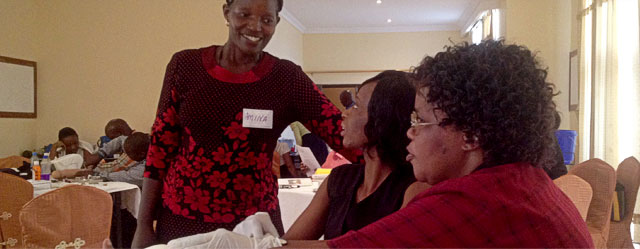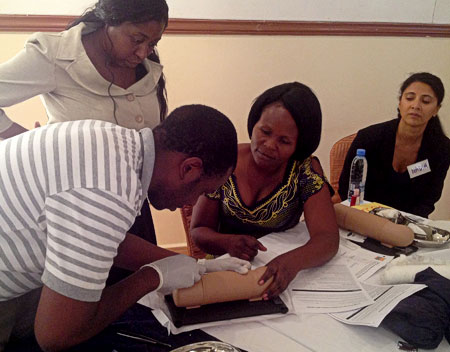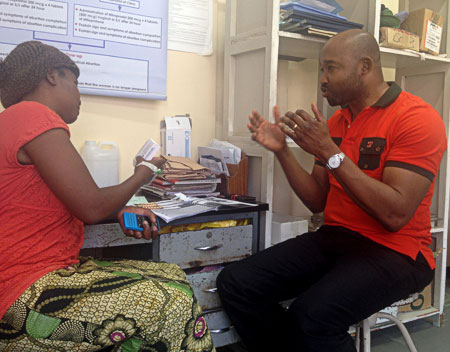Intrauterine devices (IUDs) and implants—sometimes known as long-acting reversible contraception (LARC)—are the most effective methods of contraception and are safe to use immediately after an abortion. However, misconceptions about their safety, lack of experience using the methods, and supply problems can pose major barriers to women’s access.
One innovative Ipas approach to better integrate IUDs and implants into comprehensive abortion care has proved promising: regional trainings that bring together trainers and mentors in abortion care from nearby countries to learn from their colleagues’ experiences.

In two trainings over the past year—one in Nepal for Nepali and Indian trainers and one in Zambia for Zambian and Kenyan trainers (pictured above)—participants learned strategies from each other for increasing women’s access to IUDs and implants.
For example, although India and Nepal offer similar family planning services, contraceptive implants aren’t yet available in India; participants from India were able to learn about the benefits of implant use from their Nepali counterparts and then planned to advocate on behalf of Indian women to gain access to the method. Similarly, Zambian trainers learned from their Kenyan colleagues about why so many more women are using long-acting contraception—especially implants—in Kenya. (At the Zambia training, pictured right, participants practiced inserting implants.)

“Our goal is to improve LARC provision in the abortion context, but we of course also want our providers and trainers giving information on IUDs and implants to all women, regardless of whether they’re seeking abortion, contraception, or postpartum care,” explains Alice Mark, MD, Ipas senior clinical affairs advisor. Trainings of abortion trainers and mentors are intended to have a “trickle-down” effect, allowing those trained to feel more comfortable discussing these forms of contraception not only during comprehensive abortion care trainings, but also during visits to abortion care facilities and when providing patient care (to that end, trainees in Zambia shown above practiced contraceptive counseling skills).

Learn more about LARC
- Contraceptive implants and IUDs are safe and highly effective methods that last for three to twelve years, with less than one pregnancy in one hundred woman-years of use.
- Implants and IUDs are more effective than oral contraceptive pills, hormonal injections and barrier methods.
- Most women—including young women, women who have never had children, unmarried women, married women and women who have just undergone uterine evacuation—may use these methods safely.
- Extensive research has shown that IUDs do not cause infertility.
- The American College of Obstetricians and Gynecologists recently affirmed that long-acting methods should be top-tier recommendations for young women, and the American Academy of Pediatrics also supports this guidance.
- Women who use IUDs and implants methods need to know about dual protection; the implant or IUD will prevent pregnancy, but women also need to use a barrier method to prevent sexually transmitted infections.
- See the latest evidence-based recommendations on postabortion contraception in Ipas’s Clinical Updates in Reproductive Health for further details on proper use of LARC after abortion care.
For more information, contact [email protected]

